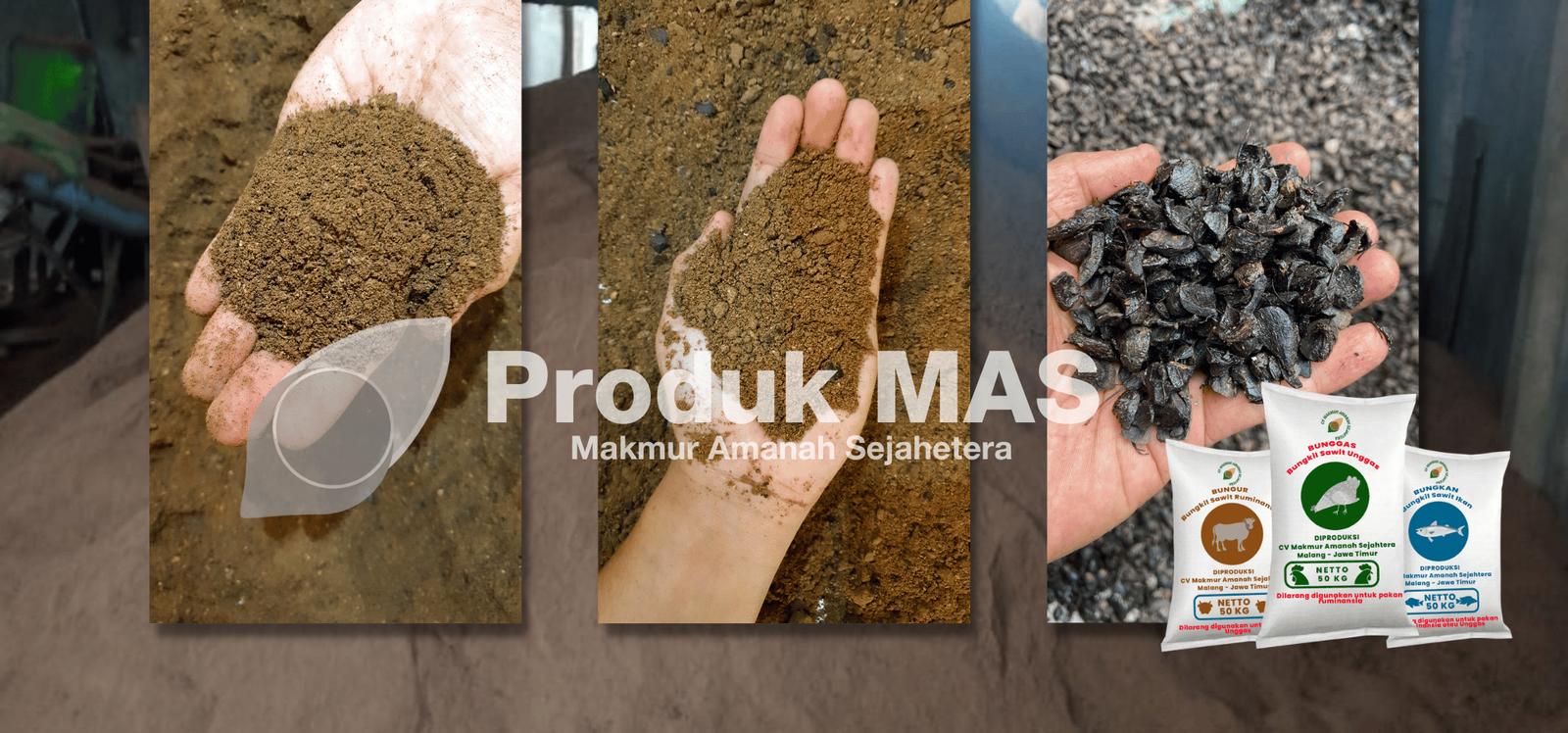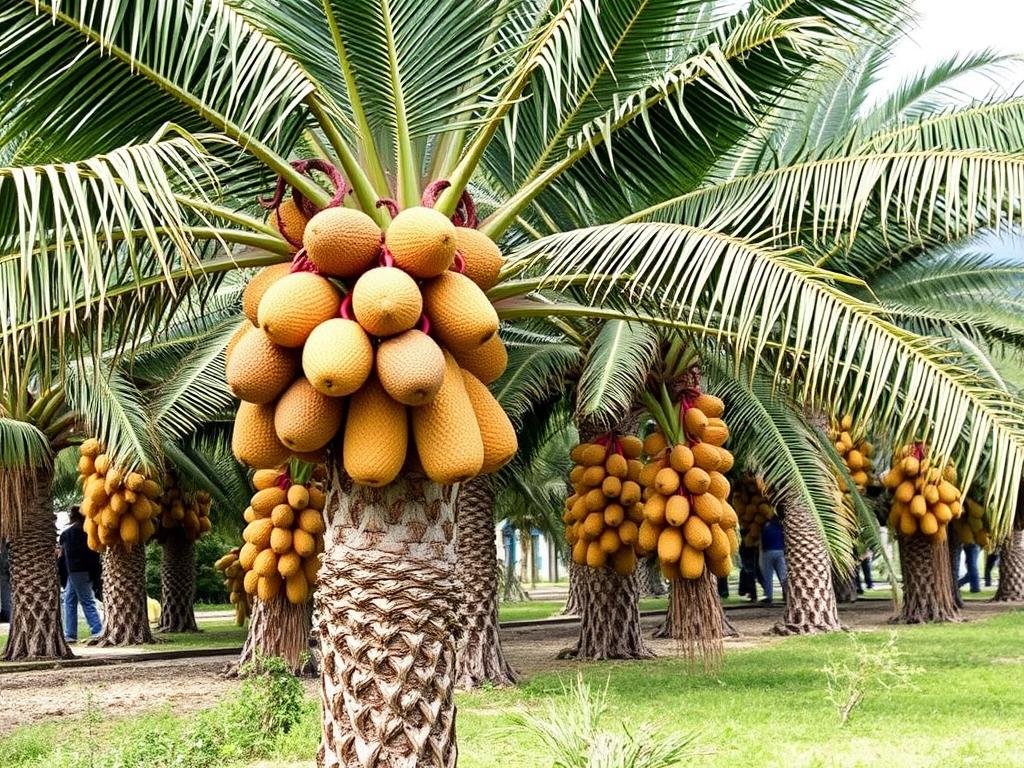
What Are Empty Bunches Of Oil Palm?
Simply put, empty bunches of Palm it is the part of fresh fruit bunches (FFB) that remains after all the palm fruits (brondolan) are separated from their bunches during the threshing process at the palm oil mill. TKKS has fibrous characteristics (lignocellulose) with a fairly high water content when just out of the production process.
Its main composition consists of cellulose, hemicellulose and lignin, which makes it a rich organic material. With a volume that can reach 23% of the total weight of processed FFB, proper management of this material is the key to efficient and sustainable plant operations.
5 Incredible Benefits of empty bunches of Palm
Innovation and technology have paved the way for the utilization of empty bunches of Palm to the maximum. Here are five of its main benefits that are most significant and have a positive impact.
1. As Raw Material For Organic Compost Fertilizer
One of the most common uses and has a direct impact on plantations is to process TKKS into compost or use it as mulch. The high potassium content in TKKS is very important for the growth and productivity of the oil palm plant itself.
By applying compost from TKKS back to plantation land, the company can reduce its dependence on inorganic fertilizers. Utilization of waste is in line with the use of other by-products such as Palm Kernel Expeller rich in nutrients for animal feed, showing the approach zero waste in the palm oil industry.
2. Renewable Biomass Energy Sources
Potential empty bunches of Palm as a source of renewable energy is enormous. The fiber content has a calorific value that can be used as boiler fuel in Palm Oil Mills. This reduces the use of fossil fuels and reduces the energy costs of plant operations. In the context of biomass energy, TKKS are often compared with Palm Kernel Shell, which is also a popular fuel for industrial boilers due to its high calorific value.
Furthermore, TKKS can be processed into solid energy products such as biomass pellets or briquettes. This product has a selling point and can be exported as a green energy source. According to The Indonesian Ministry of energy and Mineral Resources, biomass is one of the important pillars in the national renewable energy mix.
3. Alternative Pulp and paper raw materials
Lignocellulose fiber in TKKS can be extracted to be used as raw material for making pulp (pulp) and paper. This utilization helps to reduce the pressure on forests as the main source of pulp raw materials. Paper produced from palm waste has a quality that can compete for certain paper products.
Although technological challenges and economies of scale still exist, the development of the TKKS-based pulp industry continues. This is an innovative solution to support a more environmentally friendly paper industry.
4. Food Mushroom Growing Media Worth Selling
For agribusiness activists, TKKS is an ideal growing medium for the cultivation of several types of food mushrooms, such as edible mushrooms and oyster mushrooms. Its organic nature, sterility (after the boiling process in the plant), and ability to retain water make it a fertile substrate for the growth of fungal mycelium.
The use of TKKS for mushroom cultivation opens up new business opportunities for communities around oil palm plantations. This is a vivid example of how industrial waste can create a productive alternative source of income.

5. Particle Board Manufacturing Material
Fiber from TKKS can also be processed and compressed into particle board (particle board) or Medium-Density Fibreboard (MDF). These boards can be used as raw materials for the furniture industry and wood substitute construction materials.
The utilization of TKKS for particleboard not only adds value to waste, but also contributes to reducing deforestation rates by providing an alternative to solid wood.
Economic and environmental potential of TKKS
Optimal utilization of TKKS offers two major advantages: economic and environmental. Economically, cultivate empty bunches of Palm means creating a value-added product from something that was previously considered garbage. This opens up new revenue streams, creates jobs, and increases the efficiency of the industry.
In terms of the environment, good TKKS management can reduce methane emissions that arise if this waste is only stacked and left to rot. In addition, its use as biomass energy and alternative raw materials helps reduce the carbon footprint and dependence on non-renewable natural resources.
Conclusion
Empty bunches of Palm it has proven itself to be a much more valuable resource than mere waste. From organic fertilizers that fertilize the soil, renewable energy sources, to raw materials for creative industries, the potential is vast and promising.
By continuing to encourage innovation and investment in TKKS processing technology, the Indonesian palm oil industry can move towards a more sustainable, circular and environmentally friendly business model. Turning waste into a blessing is a real step towards a brighter future for agribusiness.
Makmur Amanah Sejahtera provides high-quality palm products such as Palm Kernel Expeller, Palm Kernel Shell, Crude Palm Oil, Palm Kernel Oil, etc. Kindly contact us at WhatsApp +6282140002198 or email us at admin@makmuramanah.co.id.

Ordering Information
In its use, empty bunches of Palm can be a versatile raw material of economic value for industry. In Indonesia, there are many companies that utilize empty bunches of Palm, one of which is Makmur Amanah as one of the suppliers empty bunches of Palm in Indonesia. If you need a supplier for empty bunches of Palm in Indonesia, we are ready to supply products empty bunches of Palm for your energy, agricultural or industrial needs.
Our Contact/WhatsApp
0821 4000 2198